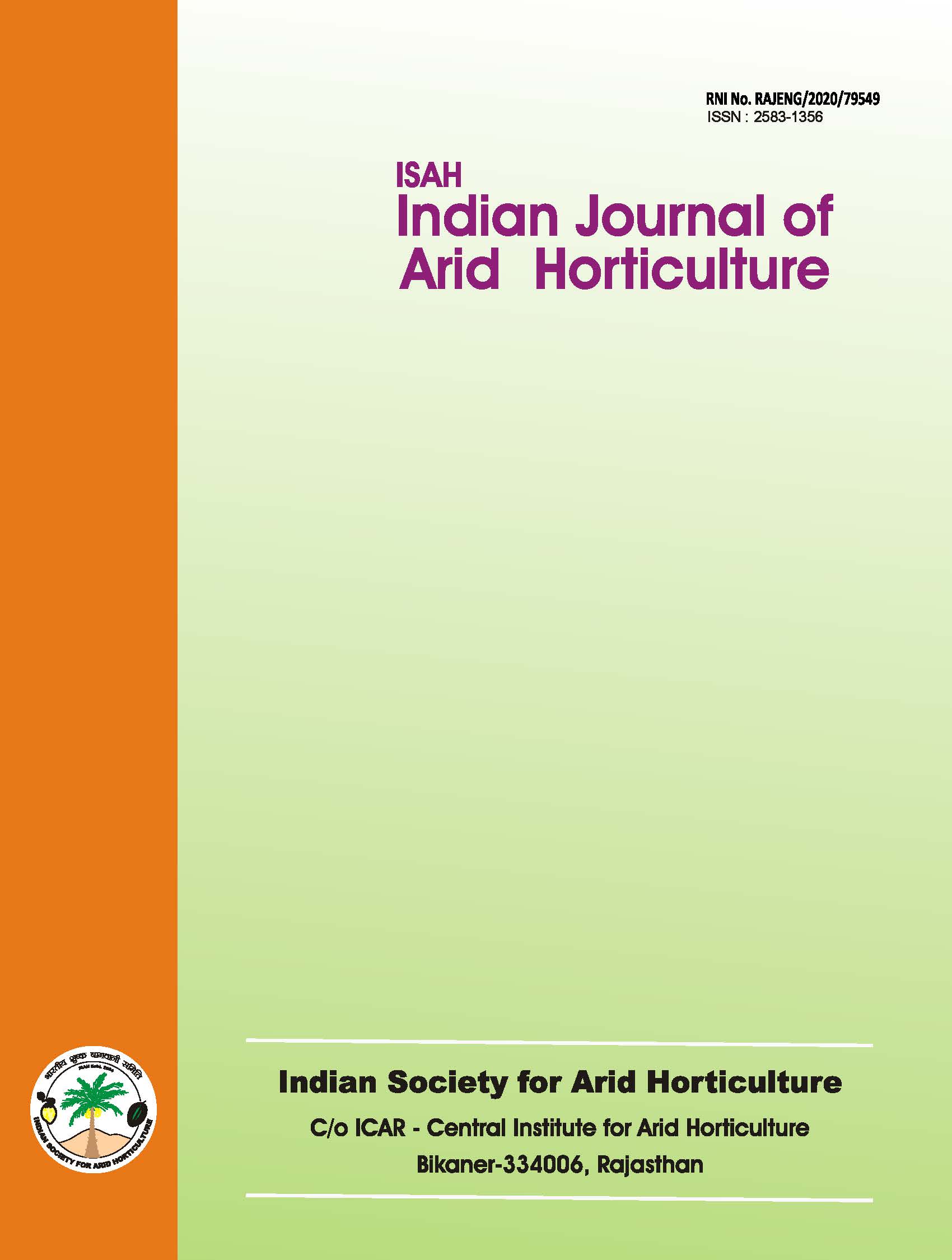Changes in total phenolics and total antioxidant activity of kair (Capparis decidua) fruits during maturity
Keywords:
Capparidaceae, ecological, computerAbstract
Capparis decidua (Forsk.) Edgew (Capparidaceae), determined with the Folin- Ciocalteu reagent (Medini et al. commonly known as Kair, is a hardy plant, resistant to almost 2014) and expressed as mg GAE/g DW. Total antioxidant all type of abiotic stresses like heat, cold, drought salinity etc. activity (TAA) of the ethanolic extract was determined by naturally grow in arid region of India specifically Rajasthan, DPPH radical scavenging activity by following the method of Haryana, MP, Gujarat states. This plant is also a vital Re et al. (1999) and expressed as mg Vit C equi./g DW. All component in nutritional and income security of the rural analyses were performed in triplicate and values expressed as peoples, especially in the arid region. Besides many the mean ± standard deviation. Data analysis was carried out socioeconomic and ecological benefits, all parts of this plant using the analysis of variance and OPSTATE statistical have a number of medicinal properties. The plant is computer package (www. http://hau.ac.in/about/opstat.php)
Downloads
References
Baloda, S. and Bangarwa, K. S. 2010. Nutritional and medicinal values of kair (Capparis decidua). Haryana J. Hortic. Sci., 39(3&4): 200-201.
Joseph, B. and Jini, D. 2011. A medicinal potency of Capparis deciduaA harsh terrain plant. Res. J. Phytochem., 5: 113.
Medini, F., Fellah, H., Ksouri, R. and Abdelly, C. 2014. Total phenolic, ?avonoid and tannin contents and antioxidant and antimicrobial activities of organic extracts of shoots of the plant Limonium delicatulum.J. Taibah Univ. Sci., 8: 216-224.
Re, R., Pelledrini, N., Proteggente, A., Pannala, A., Yang, M and Rice-Evans, C. 1999. Antioxidant activity applying an improved ABTS radical cation decolorization assay. Free Radic. Biol. Med., 26: 1231-1237.
Singh, D. and Singh, R. K. 2011. Kair (Capparis decidua): A potential ethnobotanical weather predictor and livelihood security shrub of the arid zone of Rajasthan and Gujrat. Indian J. Tradit. Knowl., 10: 146-155.
Singh, P., Mishra, G., Sangeet, S., Srivastava, K. K., Jha, K. and Khosa, R. L. 2011. Traditional uses, phytochemistry and pharmacological properties of Capparis decidua: An overview. Der Pharm. Lett., 3: 71-82.
Tlili, N., Khaldi, A., Triki, S. and Munne-Bosch, S. 2010. Phenolic compounds and vitamin antioxidants of caper (Capparis spinosa). Plant Foods Hum. Nutr., 65: 260-265.
Zia-Ul-Haq, M., Cavar, S., Qayum, M., Imran, I. and de Feo,
V. 2011. Compositional studies: antioxidant and Antidiabetic activities of Capparis decidua (Forsk.) Edgew. Int. J. Mol. Sci., 12: 8846-8861; doi:10.3390/ijms12128846.
.

